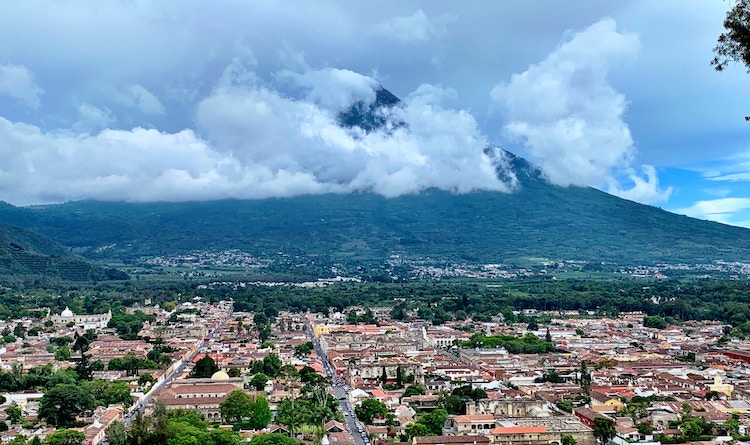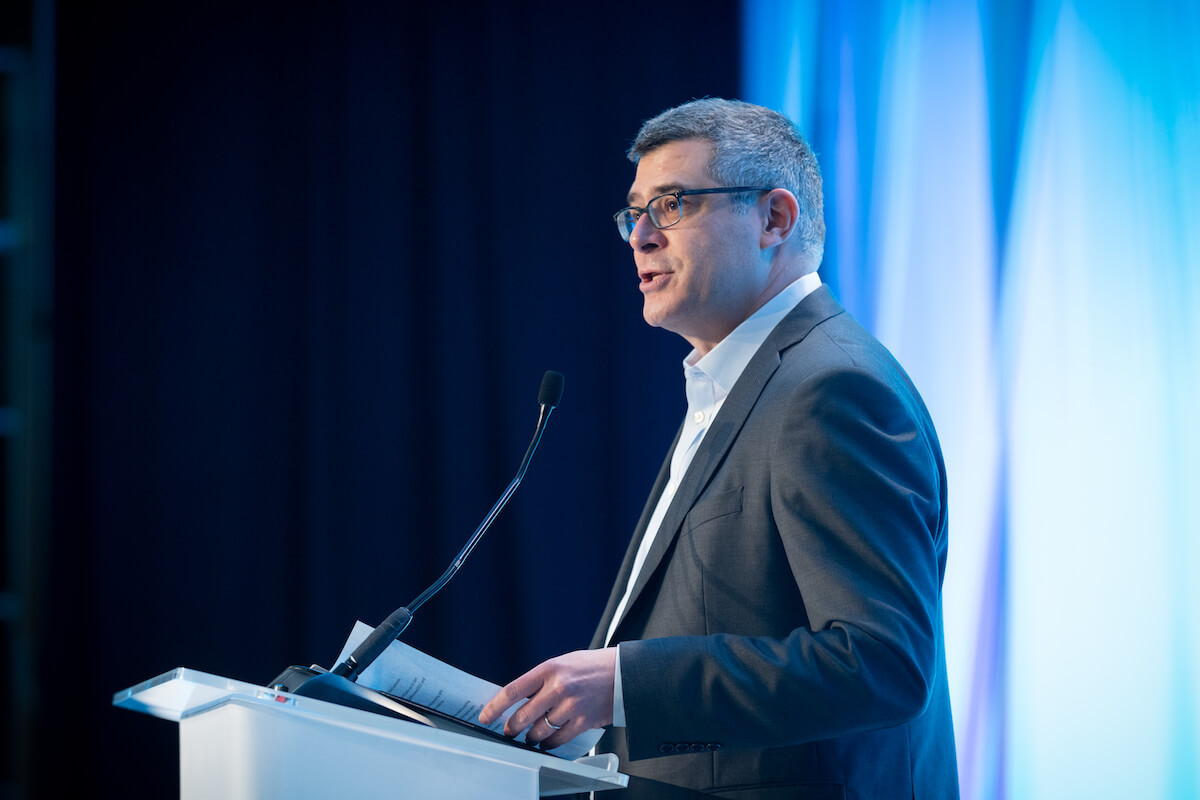Greetings, Agents of Impact!
Signals: Climate Finance
Laggards and leaders among biggest bankers of carbon. When heading toward a cliff, first take your foot off the gas. U.S. and global bankers, including JPMorgan Chase, Wells Fargo and Citigroup, provided almost $2 trillion in new fossil fuel financing between 2016 and 2018, despite increasing awareness of climate risks. “Shareholders own the residual risks of all loans, and are uniquely vulnerable to bank failures resulting from substantial correlated defaults, and systemic failure resulting from ‘business as usual’,” warns a new report. Boston Common Asset Management found a “systematic reluctance” by banks to press their high-carbon clients and reduce their risk. Needed: decarbonizing of balance sheets, phasing out of funding of fossil fuels and deforestation, and a top to bottom cultural shift within banks, including “a willingness to walk away from clients.”
A small but growing cohort of banks across Europe, Japan and yes, the U.S. are taking the first steps to mitigate or at least assess such risks. French banks are leading the way along with Dutch and Australian banks. “Regulation is really key,” Boston Common’s Lauren Compere told ImpactAlpha. Reputation may count as well. Citi, for example, has become the only major U.S. bank to sign the Principles for Responsible Banking, and is reporting its climate-related financial risk policies as per the Task Force on Climate-Related Financial Disclosure, the new bible of risk reporting. Among countries, one of the most striking turnarounds is Japan. Mitsubishi UFJ Financial Group, Japan’s largest bank, has banned financing for new coal-fired power generation projects or coal from mountaintop mines. Nearly two dozen planned coal-fired power plants have been cancelled across Japan. Turning banks around on climate financing will go very slowly until it goes very fast.
- Accounting is destiny. Boston Common found 37 of 58 banks reported substantive progress across climate-related strategy, risk management and opportunities. More than three-quarters are carrying out TCFD risk assessments. More than 30 banks are restricting lending or investment as a result of these assessments.
- Bon travail. Natixis has introduced “green weighting” to tip its allocations toward the objectives of the Paris climate agreement (see, “Retooling finance to accelerate the low-carbon transition“). Last year, Crédit Agricole was the only bank to assess carbon emissions for its entire lending portfolio, using its P9XCA method.
- Leading laggard. Citigroup is the third-largest funder of fossil fuels after JPMorgan and Wells Fargo, according to the Rainforest Action Network. But Compere noted Citi is part of the CDP Financial Sector Pilot, a founding signatory of the new Poseidon Principles focused on shipping, and is reporting under TCFD its climate-related financial risk policies. The U.S. Federal Reserve, which is not among more than 30 central banks in the Network for Greening the Financial System, held its very first climate-themed meeting last week.
- Risk-disclosure in Japan. “We really started seeing trajectory change,” in the country, says Compere. Unknown a couple years ago, TCFD, the risk-reporting recommendations spearheaded by Michael Bloomberg and the Bank of England’s Mark Carney, are increasingly common (see, “Agent of Impact: Mark Carney“). Sumitomo Mitsui Financial Group is part of the country’s TCFD Consortium and is engaging clients on disclosure. The Japanese government convened corporations at a “TCFD summit” in Tokyo last week.
- More.
Dealflow: Follow the Money
Abu Dhabi backs India’s Hero Future Energies for renewable generation. The Indian industrial equipment giant, Hero Group, launched its clean tech division seven years ago and is building a 2.7-gigawatt solar and wind portfolio and pipeline in the country. Globally, the company wants to install five gigawatts of renewable capacity by 2022 and invest in battery storage and electric charging stations for electric vehicles. A $150 million equity infusion from Masdar, Abu Dhabi’s government-backed clean energy company, will support Hero’s planned growth. Hero Future Energies moved its office to London, with satellite operations in India and Singapore. International Finance Corp. invested $125 million to back Hero Future Energies’ growth in Africa and Southeast Asia. Read on.
Pakistan and China-based venture capital firms team up to support Pakistani entrepreneurs. The investment ecosystem in Pakistan, the fifth-most populous country in the world, has focused more on micro- and small businesses rather than high-growth tech ventures. A $20 million fund launched by Pakistan’s Fatima Group and Shanghai-based Gobi Partners wants to invest in Pakistan’s entrepreneurs. Fatima Gobi Ventures aims to invest in 15 to 20 seed and Series A-stage tech companies in mobility, logistics, financial services, healthcare, education, e-commerce, connectivity and consumer tech, especially for the global Muslim population. It’s not an impact fund, but it will have an impact with early capital in a large market where startup funding is scarce. Check it out.
European ride-hailing company Bolt earmarks €10 million for carbon offsets. The Estonian company has a “Green Plan” to offset 5.5 million tons of carbon by 2025, boost its electric-vehicle fleet, run carbon neutral offices by 2020, plant nearly 10,000 trees in Scotland and back renewable energy projects in Kenya and India.
Signals: Ahead of the Curve
“Weaving systems” for impact investing in Central America and the Caribbean. Agents of Impact from around Central America and the world arrive in Antigua, Guatemala this week for the fifth Foro Latinoamericano de Inversión de Impacto Centroamérica y El Caribe. The spinoff of the annual FLII in Mérida, Mexico aims to advance solutions on issues from gender equality and economic inequality to migration and climate change. Pomona Impact, for example, is raising a $35 million second fund to deploy into high-growth enterprises in agriculture, as well as basic services including health, education, water and renewable energy in Central America. Agent of Impact Nathalie Molina Niño of O³, Leticia Gasca of Skill Agility Lab, and Toniic’s Emilie Cortes are among the keynotes.
- Critical mass. Representatives of 60 investment firms are expected among the 600 participants. The more than 250 early-stage companies include recycling monetization firm Ecoins in Costa Rica, El Salvador’s MASSHI, which trains and employs deaf women to produce handicrafts, and Guatemalan firms Ethikos Global and Mai. The turnout is an indication of “how the Caribbean and Central American market has evolved in these years,” says Daniel Buchbinder, founder of Alterna, the conference host.
- Dealflow. Bamboo Capital was picked to manage a $17 million renewable energy fund in Haiti… Incofin helped launch climate resilience insurance for Nicaragua’s farmers… Beneficial Return financed Ecofiltro’s ceramic water filters for Guatemala… Richard Branson launched an accelerator to bolster Caribbean climate resilience… Catholic Relief Services targeted loans for clean, reliable water in El Salvador.
- The full preview.
Agents of Impact: Follow the Talent
Frankfurt School Financial Services GmbH is hiring an investment manager for its microfinance fund in Latin America… US SIF is looking for an operations and membership services manager in Washington D.C… Ocean Innovation Africa is hosting “Africa’s First Ocean Impact Event” on Nov. 27 in Cape Town.
Thank you for reading.
– Nov. 12, 2019











